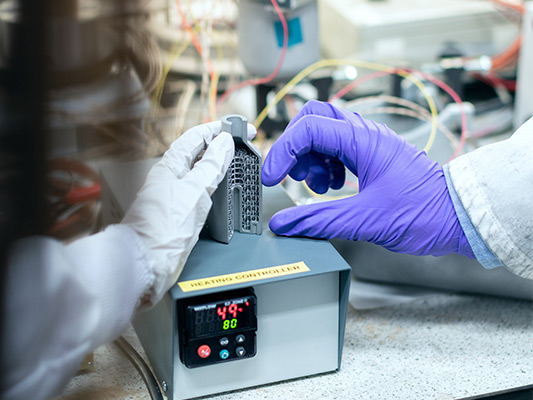Tom Reynolds, chief executive of the Bathroom Manufacturers Association, explains the lengths manufacturers go to when testing products and the crucial role retailers play in ensuring consumers choose credible brands and products
When considering a bathroom product purchase, a consumer’s first thoughts may be cost, material, aesthetics, functionality, and suitability for the available space.
However, consumers also expect their purchase to function appropriately and to last the rigours of day-to-day use. So all credible manufacturers have a behind-the-scenes operation of painstaking testing, product refinement and, often, third-party certification.
How can we be sure a loo clears the pan every time? Manufacturers have to craft ‘fake faeces’ of varying sizes that can be used repeatedly to test ‘flush ability’.
How about the ‘slipperiness’ of shower trays? A common test is for a person (safely harnessed in) to stand barefoot on the wet and soapy tray as it is tilted up on a ramp, to see how long they can stay standing.
How about the longevity? Shower and tap components are endurance-tested to simulate 20 years of daily use. So, the customer knows the product will last.
The CE mark, and since Brexit, the UKCA mark, denotes that a product meets the appropriate standard. There should always be a declaration that relevant testing has been done, but it is often in the product paperwork or displayed on company websites. If the declaration is missing, you can’t be sure that the testing has been done.
It is eternally frustrating that there are still products on the market with no testing or certification
For water fittings, it’s not just about quality, but about protecting the safety of the water supply. Manufacturers must ensure that products can comply with all the safety rules. Often, this is achieved by sending products to an independent third-party testing or certification body. While this is not a legal requirement, good manufacturers often do it despite the high cost and effort.
The Water Regulations Approval Scheme (Wras) is the most well-known third-party certification and is often mistaken for a legal necessity. It’s not, and there are other well-respected and accepted schemes run by NSF and Kiwa UK. If you’ve not heard of these three ‘Reg 4’ schemes, it’s worth noting because it is the installer’s legal responsibility to ensure installations comply with the water regulation. By looking out for either NSF, Kiwa UK or Wras retailers and their installation, teams can be sure the product they’re fitting is of a suitable standard.
Our association has always strongly advocated for greater product standards awareness.
So, it’s eternally frustrating that there are still products on the market from less credible manufacturers with no testing, no certification, and no guarantee they will perform safely or as they should. Retailers have a crucial role in looking out for test declarations or Reg 4 certifications and by asking searching questions of suppliers when that information is missing.
